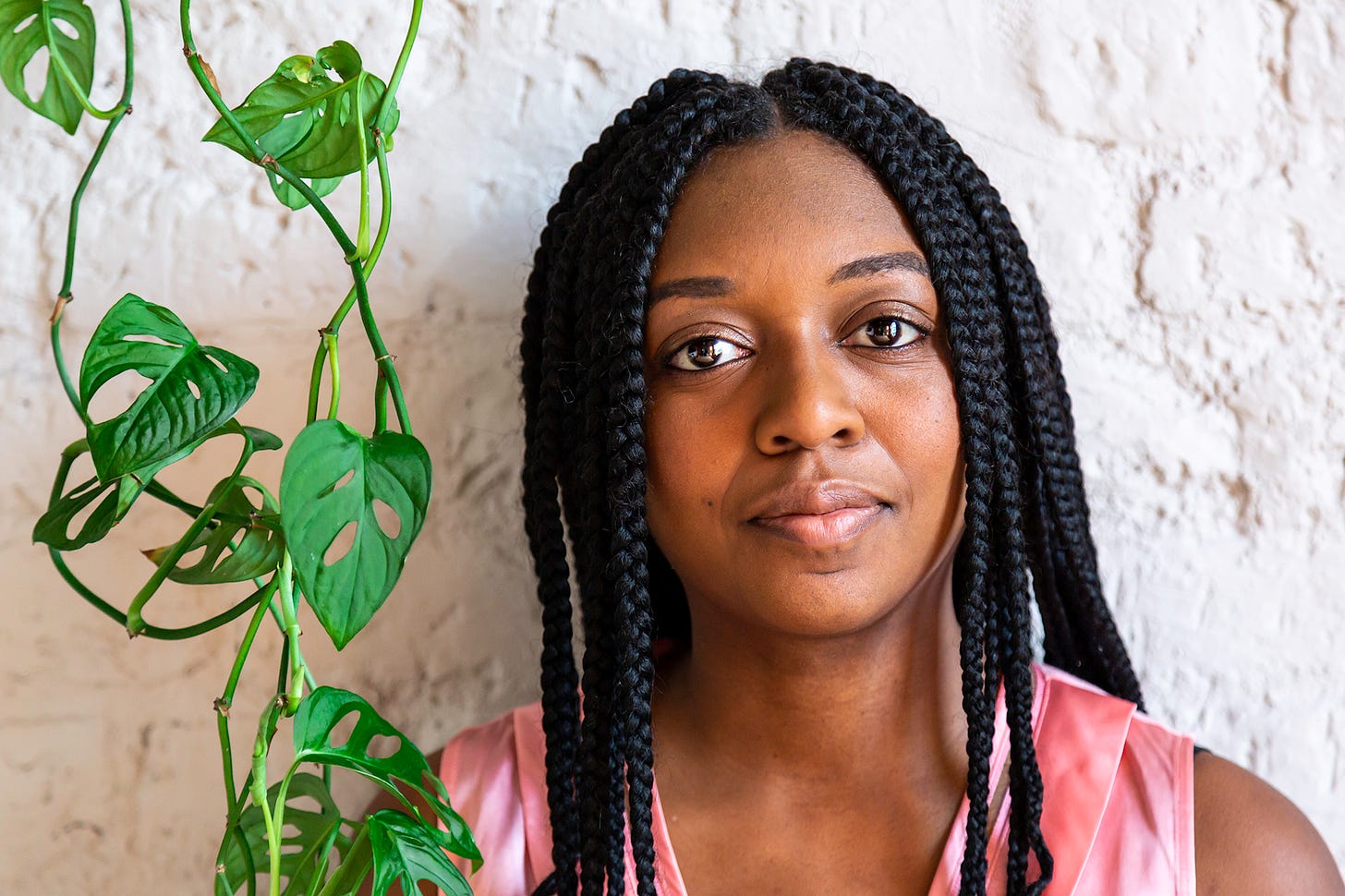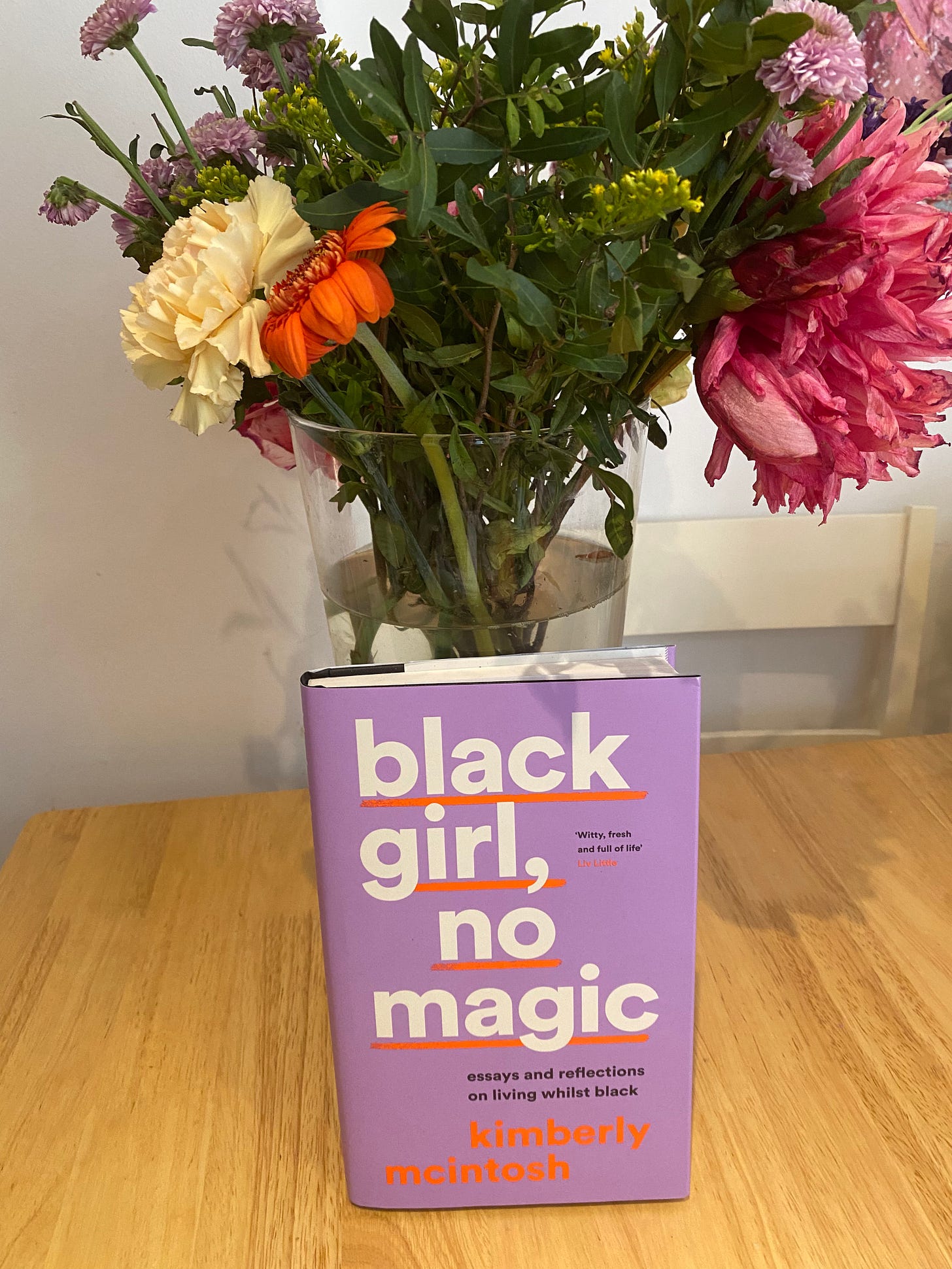Kimberly McIntosh is a writer and researcher, with a focus on race and inequality. Her first book, black girl, no magic, an essay collection that marries research with memoir will be published by the Borough Press at HarperCollins on 22nd June 2023. She has written for a range of publications including the Guardian, the Washington Post, the Independent, the Metro, i news and Vice, and gal-dem, where she was their dating columnist. Kimberly has discussed her research on BBC Radio 4 and 5 Live, BBC News and Sky News. She is a trustee at the Women's Budget Group, the Reproductive Justice Network and Wasafiri magazine, a quarterly British literary magazine covering international contemporary writing.
Below is an extract from black girl, no magic about Kimberly’s road to atheism.
‘I wrote an email [and] explained why I no longer believed, that I didn’t see any evidence for any supernatural entities. I sent it off to everyone on my email list. And, of course, the phone didn’t stop ringing for days,’ Clive Aruede from the Association of Black Humanists told me. He set up the organisation with Lola Tinubu to support African and Caribbean people who have left, or are thinking of leaving, religion. After his mass email, Aruede ‘even had a couple of people fly over from Nigeria, to try and persuade me and get me back into the religious fold’.
Tinubu, and Audrey Simmons, an organiser with ABH, both waited until their mothers had died before telling people they no longer had faith. ‘You’re not just saying I believe/I don’t believe, you’re also unpacking your life,’ Simmons said. Tinubu found family, friends and even strangers took it as a personal rejection. ‘I don’t rely on anyone. Imagine if you have to rely on your parents, for your tuition or accommodation?’
Simmons’ family are OK with her leaving the Seventh-day Adventist sect behind. They just think she’s a bit weird. She’s the lone, contrary voice in their family WhatsApp and relishes it. When she meets the new partner of a family member and catches the cheeky glance that says, ‘She’s the weird aunty,’ she’s fine with it. What’s harder, is when a lack of belief and a lack of ‘morality’ are conflated. When her brother realised that her humanism wasn’t a phase, that she wasn’t just a teenager temporarily dabbling in hairstyles and subcultures but an adult deciding it was the way she permanently wanted to live, he began to worry. Before she went on a holiday, he held her and urged her to remember the lessons of their mother about men. ‘I mean, I wasn’t not shagging them before because of God! I’m not gonna start shagging them now because I haven’t got God. It was just this idea that suddenly I was going to become some wanton tart,’ she said. ‘And that’s what you’re trying to balance. So you’re having to live this life not being a tart. I might be, but I’d have to hide it. You’re scrutinised just a little bit more if you do something: ‘ah well, you know, she’s an unbeliever, what do you expect?’
For Reverend Jarel Robinson-Brown, Curate at St Botolph without Aldgate Diocese, these exclusionary ideas about morality are not in line with scripture. ‘The moment you look at the Jesus of history, to the Jesus of scripture, you can’t make arguments against things like the ordination of women or the marriage of same-sex couples,’ he said. ‘It’s very hard to do that when you see a Jesus, who just doesn’t seem to care about those things.’ In his book, Black Gay British Christian Queer: The Church and the Famine of Grace, he argued that the Christian community in the UK proclaims that love is for all and all are welcome in name only. In reality, people are divided into binaries: the deserving and undeserving, the good and the bad, the saint and the sinner, and included and excluded depending on which side they fall. The Church of England’s role in the slave trade and colonialism and the testament of LGBTQ+ Christians are examples of this ‘famine of grace’, the gap between the gospel and the realities of church life. The policies and attitudes that are designed to keep certain people out.
The perpetuation of sexism, homophobia and transphobia all contributed to my disillusionment with Christianity. It didn’t chime with the values I’d interpreted from my shallow under- standing of scripture, so I became uninterested in it. ‘[The church] is often the first place a lot of people look to, when they’re looking to encounter Jesus, understandably,’ Robinson-Brown told me. ‘And sadly, so rarely, people find him there, they find a very different thing.’
That’s what makes his own congregation sound so special. ‘On a Sunday morning, I look out and think I can’t see any other space where all of you people, we have trans folk, we have heterosexual, black folk, young and old, children, old people, people from China, we have a brain surgeon in our church, and on a Sunday morning, these people are sitting side by side. That’s not happening anywhere else in society, really.’
I saw similarities in the experiences of the Black Humanists and the work of Jarel Robinson-Brown - the world they want to build to replace the exclusionary one we’ve got. ‘What do we want as humanists? We want a democratic process. We want protection of human rights,’ Tinubu said. ‘We protested about the Chibok girls. We’ve supported LGBT groups. We’re always on the lookout for when we feel that there is injustice.’
Buy Kimberly’s book here.
I am also so excited to have been nominated for Writer of the Year at this year’s GUAP Gala. Please register and vote for me here!






